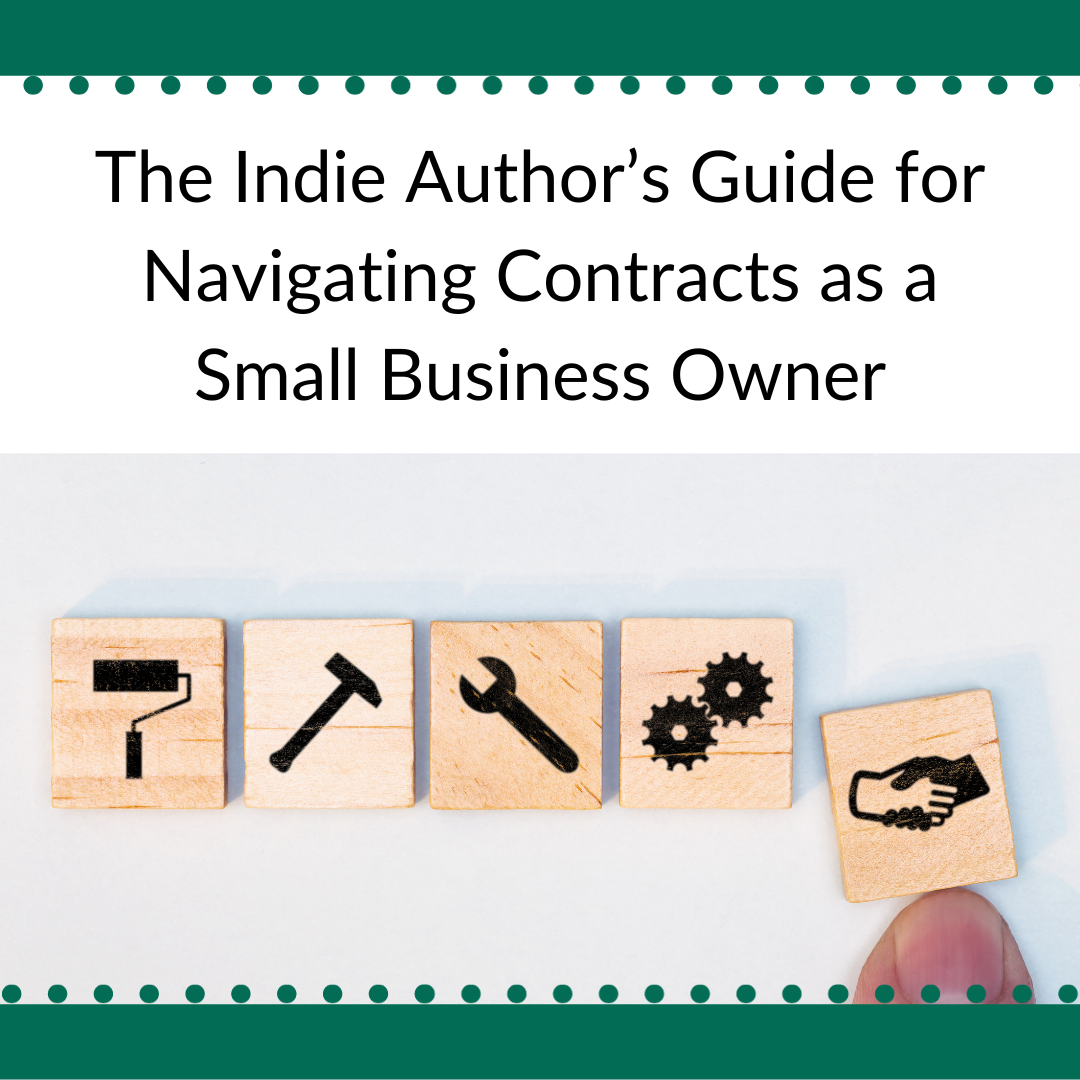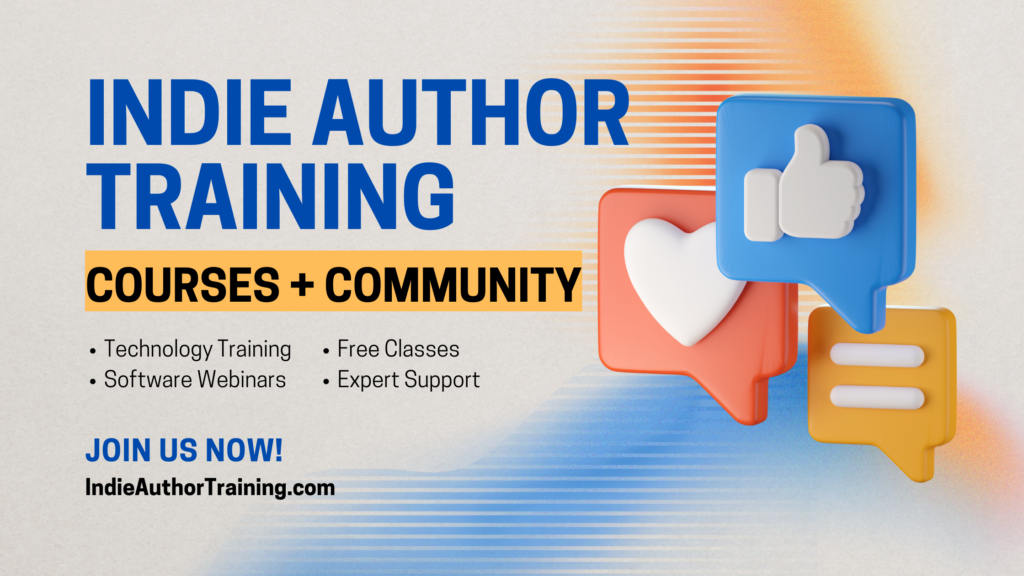As small business owners, indie authors deal with a lot of contracts—both those we need to sign and, in some cases, those we create. Whether it’s a collaboration with a coauthor, hiring an editor or cover designer, or tied to an event you’re planning to attend, contracts are a vital part of our professional journey. Yet, all too often, we skim through these documents without truly understanding what we’re signing.
As tedious as they can seem, it is vital that you read contracts thoroughly in order to understand the terms and conditions of the agreement, protect your interests, and avoid potential legal and financial consequences. In this article, we’ll explore the significance of understanding contracts and provide insights into how to navigate them effectively, giving you the knowledge and confidence you need to protect your rights as a creator.
Note: The information provided here is not legal advice and should not be taken as such. It is meant for general education purposes only. Furthermore, these definitions are always subject to change; be sure to do your research and consult legal professionals if you have specific questions.
The Importance of Understanding Contracts
Contracts are the backbone of any business, and the indie author’s career is no exception. These legally binding agreements govern the terms of engagement, responsibilities, and expectations of a business agreement, and they can significantly impact your writing journey. Here’s why understanding contracts is crucial:
Legal Protection: Contracts safeguard your rights and interests. They clarify roles and responsibilities, payment terms, deadlines, and more. In case of any disputes, a well-structured contract can protect your work and your income.
Professionalism: Taking the time to understand and create clear, comprehensive contracts demonstrates professionalism. It ensures transparency in your business relationships and builds trust with collaborators, editors, or designers.
Risk Mitigation: Contracts can help you identify and address potential issues in advance. By specifying what happens in various scenarios, you can avoid misunderstandings and complications down the road.
Empowerment: Understanding contracts empowers you to negotiate favorable terms and make informed decisions. You can ensure that the agreement aligns with your goals and values as an author.
Translating Legalese: A Guide to Understanding Contracts and Avoiding Red Flags
When you receive a contract, it is crucial to take the time to read it carefully. Contracts are complex legal documents, and the language used may not always be straightforward. By dedicating sufficient time to comprehending the entire contract, you gain a clear understanding of its significance and context. This ensures that you’re fully aware of what you’re committing to.
Payment terms are often one of the most critical aspects of a contract. They specify when and how much money is to be exchanged. Pay close attention to these provisions to make sure they align with your expectations and financial capabilities. For example, are there penalties for late payments? Are there installment plans? Are there any conditions for invoicing?
Contracts often have time-sensitive elements. You need to be aware of deadlines for deliverables, project completion, or any other time-bound obligations. Missing these deadlines can have serious consequences, so understanding and planning for them is essential.
If the contract involves intellectual property, such as content creation or creative work, pay careful attention to the copyright provisions. Understanding who retains ownership of the intellectual property and any licensing or usage rights is crucial. This can impact your ability to use or monetize your work in the future. Ensure any contract you sign clearly defines who holds the rights to the work and how royalties will be distributed, and for how long those rights are retained.
Confidentiality clauses are vital in many contracts, especially in business and employment agreements. These clauses outline both your and the other party’s responsibility to protect sensitive information and trade secrets. Misunderstanding or violating these clauses can lead to legal liabilities and reputational damage.
Dispute resolution clauses dictate how conflicts between the parties should be handled. Some contracts require mediation or arbitration before pursuing legal action, while others may specify the jurisdiction for legal proceedings. Understanding this aspect is essential, as it can affect how you address disagreements or conflicts in the future.
When reviewing contracts, be on the lookout for certain clauses or phrases that could have a significant impact on your author career. The language used in contracts can be technical and legalistic, making it easy to misread or misunderstand the intended meaning. Paying special attention to these sections helps prevent such misinterpretations and can identify potential issues so you can address them ahead of time.
Pro Tip: The Alliance of Independent Authors (ALLi) offers a glossary that enables you to understand the parts of a contract and the legal terms you’re most likely to encounter as an indie author: https://selfpublishingadvice.org/contracts-for-indie-authors-a-glossary. ALLi members can also reach out to the nonprofit’s legal team for advice on specific contracts.
Addressing Unwanted Clauses
If you encounter clauses or phrases you don’t agree with in a contract from an editor or designer, it’s crucial to communicate your concerns. Discuss the terms with the other party and consider negotiating changes that better align with your needs and expectations. Flexibility and open communication can lead to more favorable agreements for both parties. And remember, in almost any situation, the contract signee can ask for amendments or additions if needed.
Understanding contracts is a fundamental aspect of managing your author career. These legal agreements play a pivotal role in protecting your rights, maintaining professionalism, and mitigating risks. By mastering the art of contract negotiation and comprehension, indie authors can navigate their careers with confidence and safeguard their creative work.
Creating Your Own Contracts
If you work with virtual assistants (VAs), coauthors, or other collaborators, you may need to create your own contracts. These documents should cover key aspects of your working relationship, such as responsibilities, payment terms, and deadlines. It’s essential to be specific and clear in your contracts, leaving no room for ambiguity.
While there are plenty of boilerplate contracts available online or through professional organizations like the Authors Guild (https://authorsguild.org) or ALLi, not all will be tailored to self-publishing authors or to the specific agreement you’re entering.
By creating your own custom agreement based on your needs as an indie author—whether that’s retaining all rights while still allowing others limited usage permissions; setting clear deadlines without sacrificing creative freedom; or ensuring fair compensation rates no matter how successful sales become—you can rest easy knowing everything has been spelled out clearly upfront before any money changes hands.
Here are six steps to follow when creating your own contract:
- Identify the parties and define the relationship. Clearly state the names and contact information—this means legal names, not just pen names or trading names—of all parties involved, and define the nature of the relationship, whether it’s for services, collaborations, or partnerships.
- Outline the scope of work. Provide a detailed description of the services or responsibilities each party will undertake, being sure to specify deliverables, timelines, and any other relevant expectations.
- Include payment terms, such as the amount, due dates, and payment methods. Address intellectual property rights, specifying who owns what and whether any licenses are granted. Establish confidentiality clauses to protect sensitive information. Define dispute resolution mechanisms in case of conflicts. Specify termination conditions and notice periods, if applicable. Finally, address any warranties, guarantees, or indemnification clauses.
- Define responsibilities and obligations. Clearly outline each party’s roles and responsibilities. Specify any limitations on these responsibilities, if necessary. For example, an author may acknowledge that they are solely responsible for the accuracy and factual correctness of the content. The editor’s role may be limited to grammar, spelling, and style, with no responsibility for fact-checking.
- Consider local and national laws. Ensure your contract complies with applicable local, state, and national laws. If your contract involves international parties, consider relevant international laws as well. The privacy laws for the European Union offer an obvious example for authors selling their books in Europe. The General Data Protection Regulation (GDPR) imposes significant responsibilities on businesses and provides strong enforcement mechanisms to ensure compliance. In any case, it can be a good idea to consult with legal counsel to tailor the contract to your specific needs, as legal requirements can vary depending on the jurisdiction and the nature of the agreement.
- Review, revise, and seek legal advice if necessary. Carefully review your contract to ensure clarity and completeness, and edit it as needed to address any concerns or requirements you or your collaborator highlight. If your contract is complex or high-stakes, consider seeking legal advice to ensure that it offers maximum protection and aligns with your interests.
If you are unsure about any part of a contract, be it one you’ve received or one you have created, consider seeking legal advice, either with an attorney or through a professional author service such as
Remember that contract creation can vary depending on the specific context and legal requirements of a business. It’s essential to tailor your contract to the unique needs and circumstances of the parties involved. When in doubt, consulting with an attorney experienced in the relevant field can provide valuable guidance and help you create a legally sound contract.
Contracts protect your rights and ensure that you receive fair compensation for your hard work. By understanding the basics of agreements, you can avoid costly mistakes and make informed decisions that will benefit you in the long run. Knowledge is power! Take the time to educate yourself on the different types of agreements, and seek professional help if necessary.
Remember, as an indie author, you have the power to control your career and achieve success on your terms. Don’t let a poorly written contract stand in your way.





